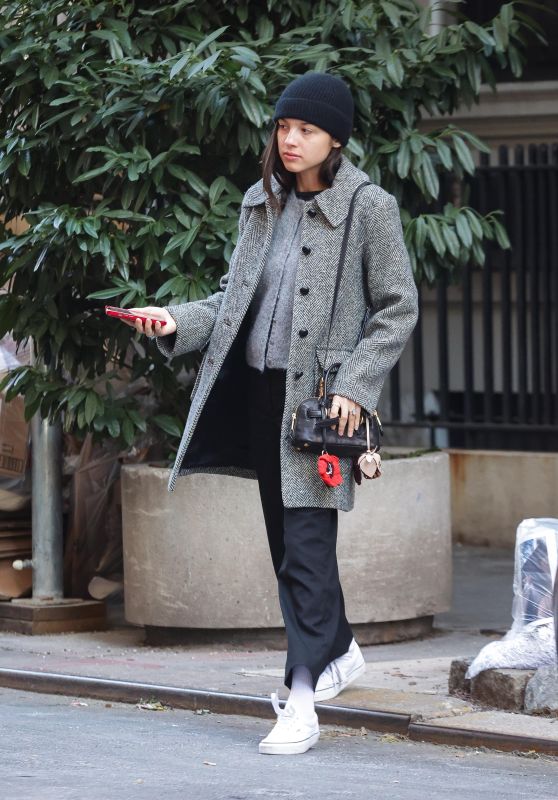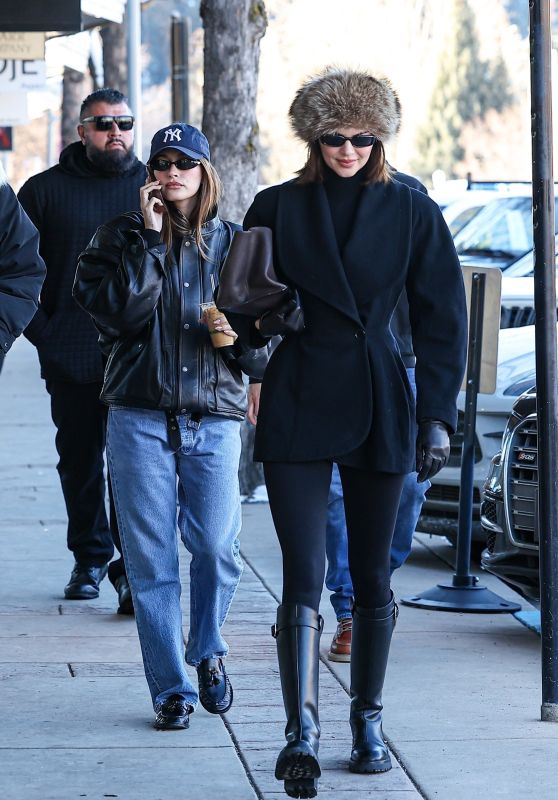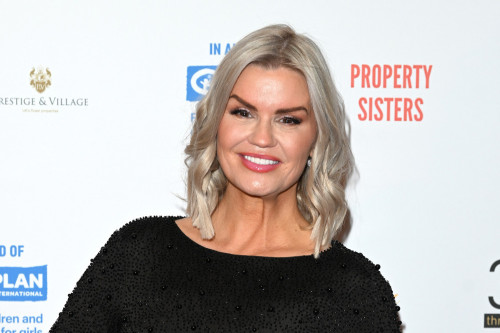[This story contains spoilers from the Oct. 24 episode of Matlock.]
Tackling sexual harassment in television and film is no longer taboo post-#MeToo. But Matlock, with its third episode, “A Guy Named Greg,” added even greater nuance to the conversation.
Kathy Bates stars as Madeline “Matty” Matlock in the hit CBS series as the cunning septuagenarian attorney who shares the same last name as the iconic TV show hero. In the latest episode, which aired Thursday night, creator/showrunner Jennie Snyder Urman and her team went beyond just getting the audience to believe the accuser and instead highlighted lingering generational divides and biases still surrounding how sexual harassment harms women.
The stage is set to unleash the larger conversation when Olympia (Skye Marshall) fails to connect with the jury as she represents Alex (Danielle Larracuente, Bosch: Legacy), a young, attractive lawyer new to her firm, in her sexual harassment claim against her colleague Jeremy Brooks (Chad Coe), who has more seniority. To win the jury back, firm Jacobson Moore’s jury consultant, aka “the Human Lie Detector” Shae Banfield (a new recurring role for Jane the Virgin fave Yael Grobglas), recommends that Matty take over. As Olympia and her colleagues — her soon-to-be ex-husband Julian (Jason Ritter), whose father Senior (Beau Bridges) founded the firm, and potential love interest Elijah (Eme Ikwuakor) — prep Matty, who hasn’t tried a case in 30 years, in the mock trial room with a pretend jury, she keeps faltering. As Shae continues questioning her, Matty responds with an emotional truth bomb.
“You’re not being honest, Matty, why?” roars Shae as she walks toward Bates’ character, repeatedly downplaying her prodding.
“Because I’m faking it,” Matty explodes. “The truth is, I don’t think we should have taken this case. Back in my day, we put up with comments like that all the time. And if it got bad, we avoided the guy. We didn’t get drunk at a holiday party and end up alone with him.”
A loud gasp comes from behind, prompting Matty and Olympia to turn their heads as Shae continues looking straight ahead to reveal a very hurt Alex — whom viewers had seen Matty persuade to wear a court outfit de-emphasizing her breasts prior to that first court appearance — before she exits the room. In the next scene, with the New York City landscape in the background, Matty apologizes to Olympia. “I’m so sorry; it’s generational; we just put up with different things then,” she says. But Olympia tears into her passionately and persuasively about Alex not needing to be perfect, and sharing that she took the case because of the world she wants for her own young daughter.
Prepping for the case, her first arguing in court, Matty recalls her own Jeremy, a guy she calls Greg who “crossed the line” and “got fresh” with her. She and her husband even joked about him. But that decision to stay out of Greg’s way, she reveals to the jury later, kept her away from litigation. Instead, she hid and pivoted to contracts. “You know it’s funny,” she tells the jury. “It seemed like a small thing back then,” shaking her head, “completely subverted my dreams, which isn’t small at all, is it?”
Admitting her own bias about Alex to the jury based on how it was during her younger days as a working woman, Matty challenges the jurors to adjust their own thinking from the age-old attack of “why Alex waited so long to report what Jeremy Brooks did” to “how bad must it have been for Alex to risk everything and finally report it?”
Urman tells The Hollywood Reporter that this episode is one of her favorites, especially since it accomplishes so many things at once. “Matty is not always right, and we wanted to dramatize some of her blind spots,” she says. “The really hopeful part is how she changes.”
Urman explains, “If you had asked her if she ever dealt with sexual harassment, she would have said ‘no.’ And then she realizes this incident that happened in her life. She thought she handled it, [but] she just pivoted. And she realizes through this younger woman’s story that, yes, she pivoted, but it cost her something. It changed the whole course of her life and the kind of law that she practiced. Those are the things that you can’t quantify.”

Urman expounds further on Matty’s emotional state, saying, “It’s one of my favorite episodes because of that, because of how she learns and how emotional it is for her to realize what things like sexual harassment can cost you. It’s not always clear at the time, and it becomes clear later. In this case, it becomes clear 30, 40 years later, and it really changes the way she thinks. And it also allows her now to realize that she does like to be in the courtroom, and it opens up a new avenue for her.”
Bates also praised the pivotal Matty episode, telling THR, “I really like that episode, not only because I get to argue a case in court which Matty dearly wanted to do all those years, and didn’t realize it until this came up, and then she remembers this event, this seminal event in her life that set her on a path that made her leave her dreams behind of being a litigator.”
The sexual harassment theme, she reveals, hit home for her. “It’s something I identified with because I grew up sexually in the ’60s and ’70s. It was a different time, and it was right before AIDS lowered the boom on all of the sexual freedom that started in the ’60s,” shares Bates. “In those days, if you decided to go to a man’s hotel room, you knew why you were going. So when the #MeToo movement came out, my reaction was a very knee-jerk reaction based on my generational experience,” she admits.
“When I saw what young women were going through now, and the kind of sexual harassment they deal with, not just by going to a hotel room, but on a daily basis in offices, and how it does affect their careers, I think that’s what Matty started to identify with — that it’s not a one-off; it’s something they have to live with. And her eyes are opened to that in the same way I think my eyes were opened. So it was a very powerful episode for me to delve into and understand what young women go through, and that they want to be able to show their bodies and be sexy and have fun and flirt, but then not have to be harassed because of that.”
“It affects you in ways that you don’t always know because you protect yourself in different ways,” Urman re-emphasizes. “I don’t know very many women, unfortunately, who haven’t gone through that. In the writers room, there was a lot of frank and honest discussion. One of our writers said that line that Matty says later, which is: The question is not why it takes her so long to report it, it’s, how bad must it have been for her to come forward?”
Urman continues, “So many times we don’t wallow in it, we pivot, and we build boundaries that we don’t realize affect us as well. Why should you have to avoid someone for their bad behavior? And what situations and places of power [are] you taking yourself out of because you have to avoid those bad situations? That’s not something Matty grappled with at all until this case and [she] realizes, ‘Oh, it changed the course of my life.’ And that is not a small thing.”
Urman is careful to note that women coming forward is still not easy, and that other factors do play a role. “I think there is still a level of privilege in who gets to report and how they’re seen and valued because it costs money; it risks the job and depends on where you are probably in this country, how serious or not serious those things are taken,” she elaborates. “It’s hopeful and aspirational when women say something and they are believed, but I think there are so many calculations every day of ‘if I do this, then I won’t have that job’ or ‘I won’t be able to support my family, and I won’t be able to pay my bills.’
“It’s devastating to me when I think about that,” she continues. “The privilege of being listened to is very real. And that’s why we want to just put more and more examples on the screen to say, ‘this is not okay,’ just so people recognize that they’re in a similar situation and they feel seen.”
***
Matlock releases new episodes Thursdays at 9 p.m. on CBS.




















 English (US) ·
English (US) ·